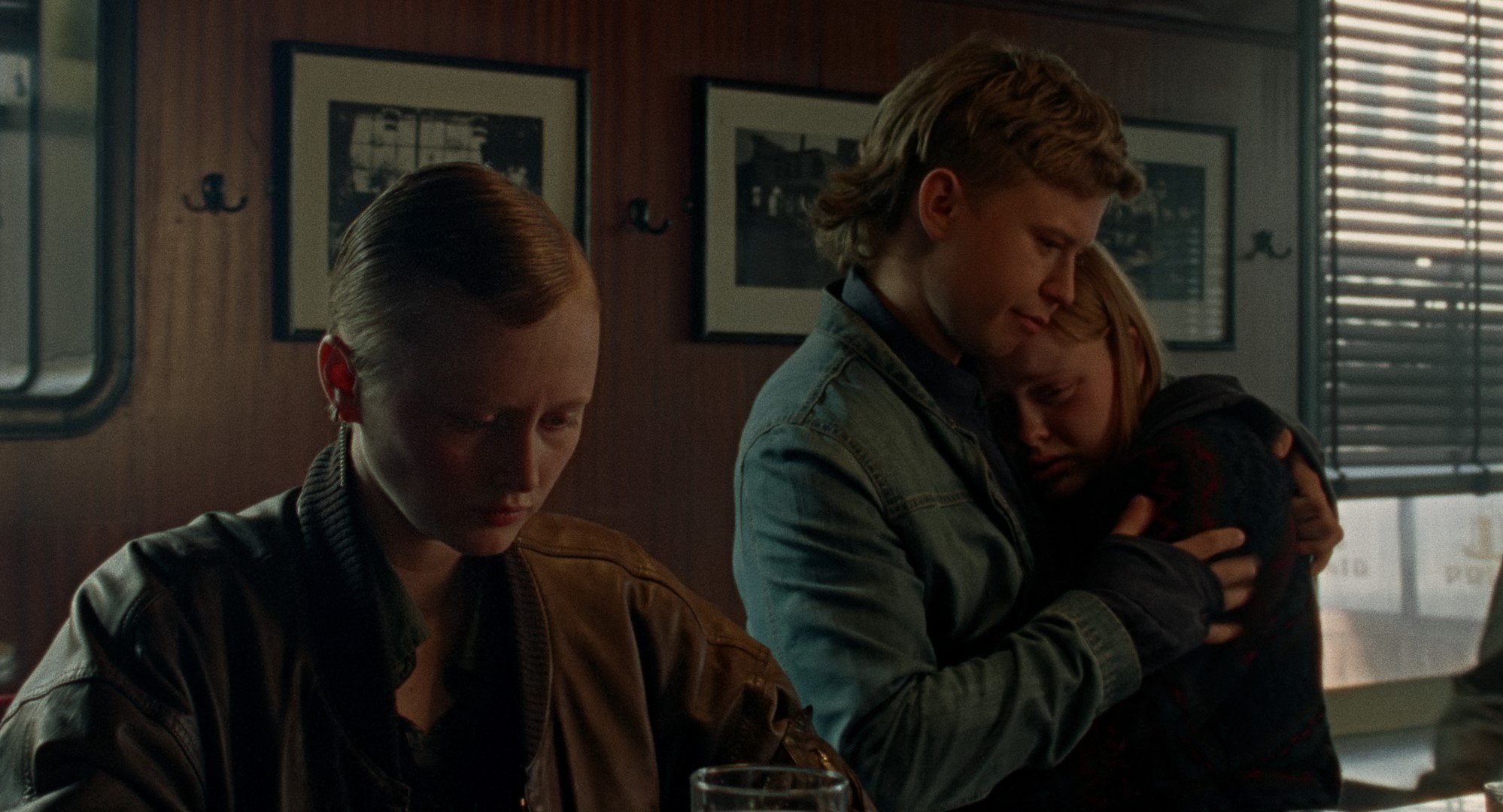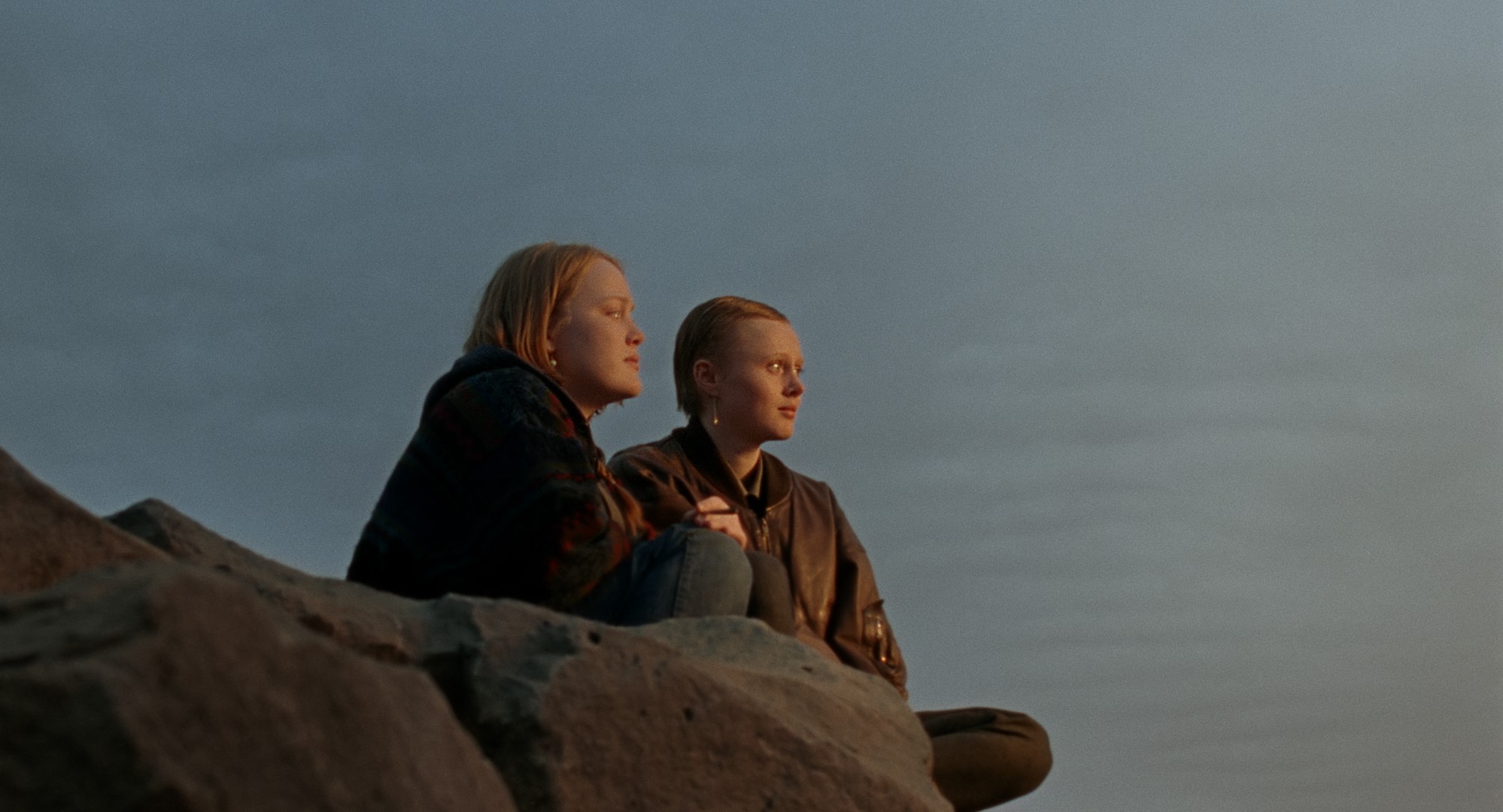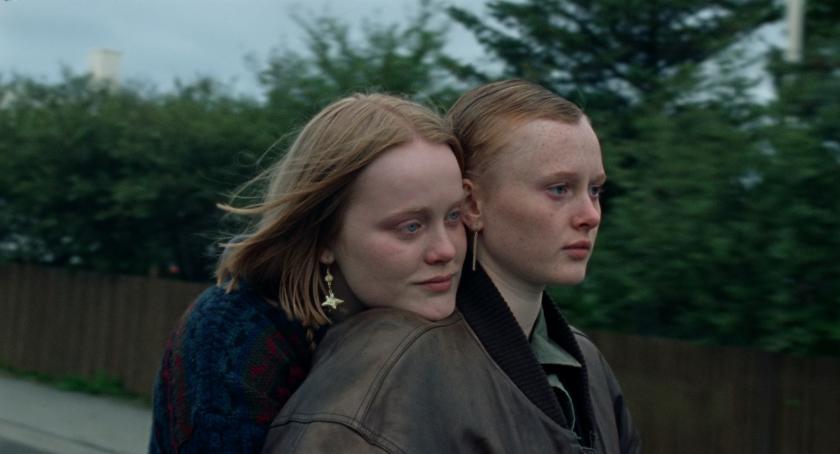Grief takes unexpected turns over the course of a long Icelandic day in Rúnar Rúnarsson’s romantic tragedy, a Prix Un Certain Regard contender at last year’s Cannes.
It starts with Una (Elín Hall) high on love with fellow Reykjavik art student Diddi (Baldur Einarsson), wandering the shoreline together at dusk then comfortably falling into bed. Diddi just has to head west the next morning to dump hometown girlfriend Klara (Katla Njálsdóttir), then life together can officially begin. When a catastrophic explosion destroys that future, Una is left secretly bereft as the nation and Klara mourn.
When the Light Breaks is bracketed by seaside scenes of peaceful contemplation, Sophia Olsson’s camera catching red solar flares which suggest cosmic enormity, embracing rather than dwarfing people. Rúnarsson meanwhile closely focuses on Una and other mourners who appear isolated in private auras of grief as if infused with a new, glowing core, coal-black, heavy and burning. The director tenderly shadows his young characters, all around 20 and suddenly plunged into adult pain. Meet-ups at the municipal art college, an impromptu memorial service and a drunken, hollering stagger home feel both naturalistic and charged with youth’s anyway intense emotions, now blasted into churning chaos. Diddi’s friendship groups and girlfriends collide, repairing to someone’s house to get off their faces and play purging punk music. They dance the trauma off, holding each other up, till Una curls into a ball of pain. “Stay in touch,” someone says, not meaning it, life already moving on.
The director tenderly shadows his young characters, all around 20 and suddenly plunged into adult pain. Meet-ups at the municipal art college, an impromptu memorial service and a drunken, hollering stagger home feel both naturalistic and charged with youth’s anyway intense emotions, now blasted into churning chaos. Diddi’s friendship groups and girlfriends collide, repairing to someone’s house to get off their faces and play purging punk music. They dance the trauma off, holding each other up, till Una curls into a ball of pain. “Stay in touch,” someone says, not meaning it, life already moving on.
Hall makes Una joyously open with Diddi and watchfully intelligent thereafter, forced to collapse inside while calibrating appropriate degrees of grief for a platonic friend. Klara blithely believed her boyfriend’s new female college pal was gay. “I’m pan – my last partner was a guy,” Una tells her, wanting to spit out the wounding truth. Klara seems a hick from the sticks at first, ignorant of hifalutin art student ways, only to delightedly accept Una’s demonstration of a playful concept. Potential jealousy is outweighed by sorrow only these two can share, held in the arc of Diddi’s suspended love. Rúnarsson superimposes their mirrored images in glass as the rivals become one. When the Light Breaks’ structure around one epochal Nordic day somewhat recalls Joachim Trier’s account of a young drug addict, Oslo, August 31st (2011). Rúnarsson is less interested in death than the responses it wrenches from lives on adulthood’s cusp. It’s a slight yet profound tale told over 80 concise minutes, as Una suffers trauma’s sledgehammer impact and multifaceted aftermath.
When the Light Breaks’ structure around one epochal Nordic day somewhat recalls Joachim Trier’s account of a young drug addict, Oslo, August 31st (2011). Rúnarsson is less interested in death than the responses it wrenches from lives on adulthood’s cusp. It’s a slight yet profound tale told over 80 concise minutes, as Una suffers trauma’s sledgehammer impact and multifaceted aftermath.
“It’ll be so strange waking up tomorrow,” Klara realises. A night’s sleep may wash away the shock, still leaving Diddi absent, cancelling their careless youth. A second sunset lights the rocky shore, as if streaking the Atlantic with volcanic embers, shining through the darkness.













Add comment